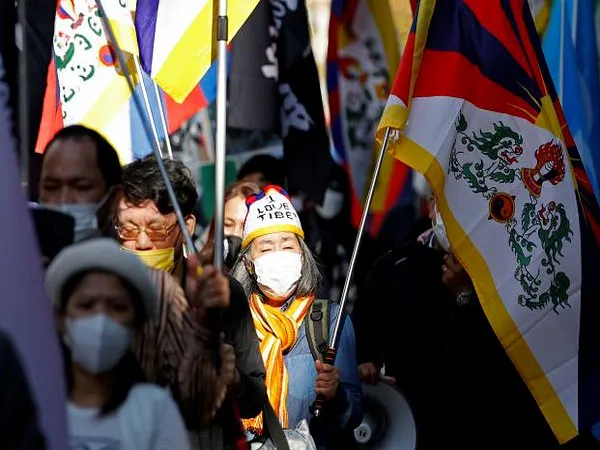In China’s occupied Tibet, human rights situation of women has worsened over time as they comprise a sizeable number among the political prisoners who are arrested for various crimes which include participation in a demonstration against the Communist ideology of Xi Jinping.
In early July this year ‘Tibet-Watch’, a Dharamshala-based human rights group, reported the case of a Tibetan woman Norzin Wangmo, in her thirties, who was being pushed from one hospital to another in the Xining city of China’s Qinghai province.
Belonging to the Chigril township of Yushu Tibetan Autonomous Prefecture of Qinghai, she was accused of sharing information with exiled Tibetans about a Tibetan nomad named Tenzin Sherab who had committed self-immolation in 2013 and was given a sentence of three years for this act of ‘treason’. She was found to be in a grave state due to severe injuries caused by the Chinese Public Security Bureau (PSB) during her arrest since 2020, TibetPress reported.
According to details received by Tibet-Watch, Wangmo was released by Chinese jail authorities in May this year much before the expiry of her sentence because her health and her condition was too bad to recover from medical treatment.
Moreover, in another news report Tibet.net, an exile Tibetan media group reported news of arrest of two Tibetan sisters named Youdon and Zumkar from Tsarang village of Amdo County in the Qinghai province.
The two sisters were reportedly tortured and detained after celebrating the Dalai Lama’s birthday on July 6.
In China it is a common practice to torture prisoners, especially the ones who are found guilty of political crimes, and release them before they die inside the prison.
In China’s occupied Tibet, women form a sizeable number among the political prisoners who are arrested for political crimes which include participation in a demonstration against the Chinese rule or possessing a photo of the Dalai Lama or even showcasing reluctance towards the Chinese communist authorities who come to take away Tibetan children for admission in residential schools, according to TibetPress.
Notably, such special schools are established across Tibet for the purpose of ‘de-Tibetanizing’ their minds and brainwashing them with communist ideology under the new policy of President Xi Jinping which aims at producing a new generation of ‘patriotic’ Tibetans.
Earlier in April, six UN human rights experts in Geneva had issued a joint statement urging China to account for the arrest, detention and disappearance of three Tibetans who included a woman teacher Rinchen Kyi. She was arrested in August 2021 on charge of ‘inciting separatism’ after she held a hunger strike to protest against the forced closure of the Sengdruk Taktse Middle School, a privately managed Tibetan cultural setup, in Darlag County of Golog Prefecture, Qinghai Province, where she taught.
Moreover, the Chinese authorities in Tibet are using tactics to turn Tibetans against each other by creating fear and distrust among families, friends and neighbours.
According to TibetPress, some experts hailing from Italy, Taiwan and India also expressed deep concerns over the politicization of the institution of marriage by Chinese authorities in Tibet who were sponsoring marriages between male Han settlers and local Tibetan woman and termed such Chinese practices in Tibet as ‘cultural genocide’.
The Tibetan women have been subjected to the same type of suppression and discrimination at the hands of the Chinese as their basic rights have been violated.
While such atrocities against Tibetan women by Chinese authorities speak volumes about the inhuman treatment of Tibetan women by the Chinese rulers of today’s Tibet, the women of Tibet too have proven their guts and determination to fight back against this tyranny and are playing their role with courage both at the family front as well as in the national struggle.

